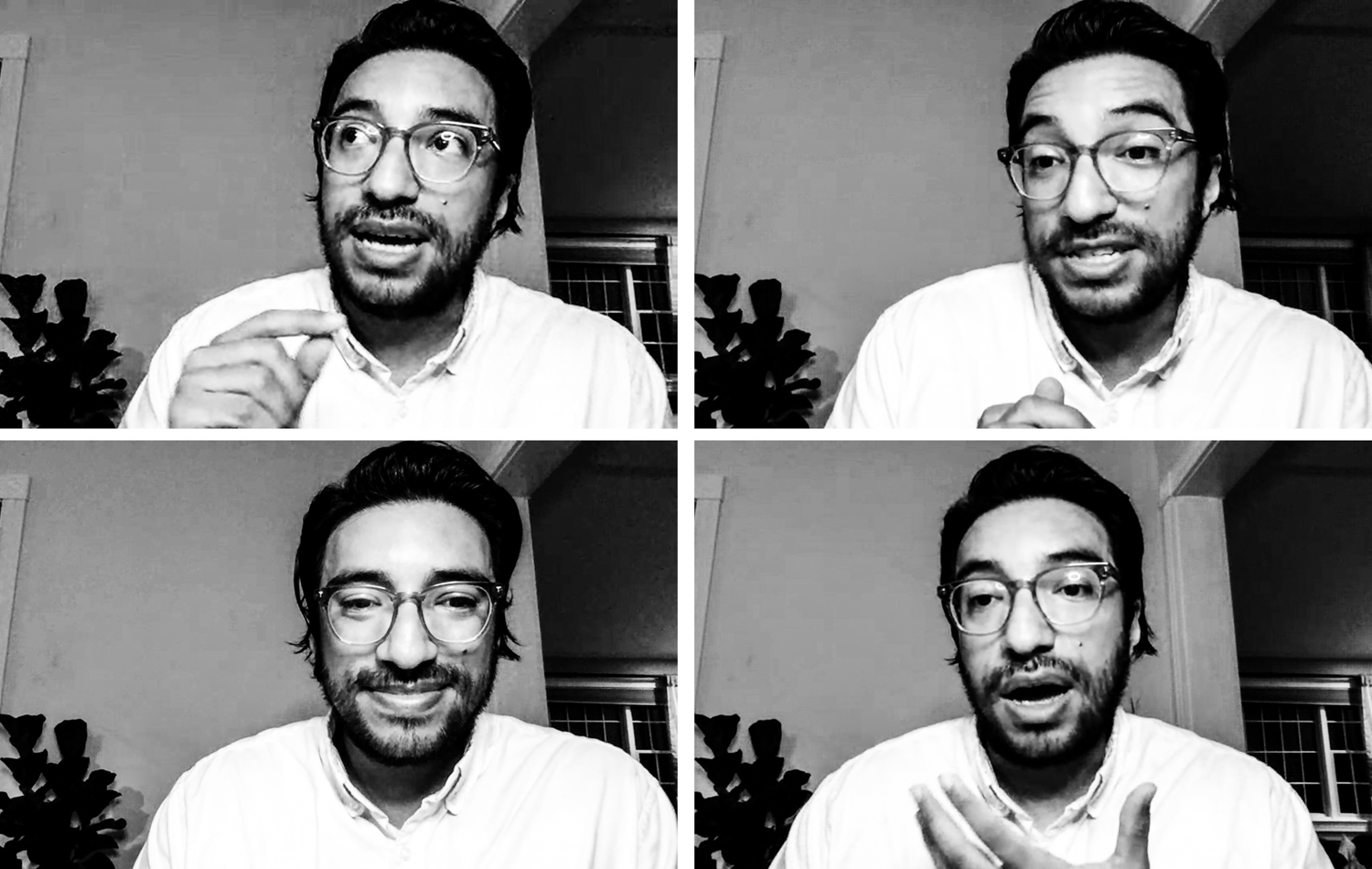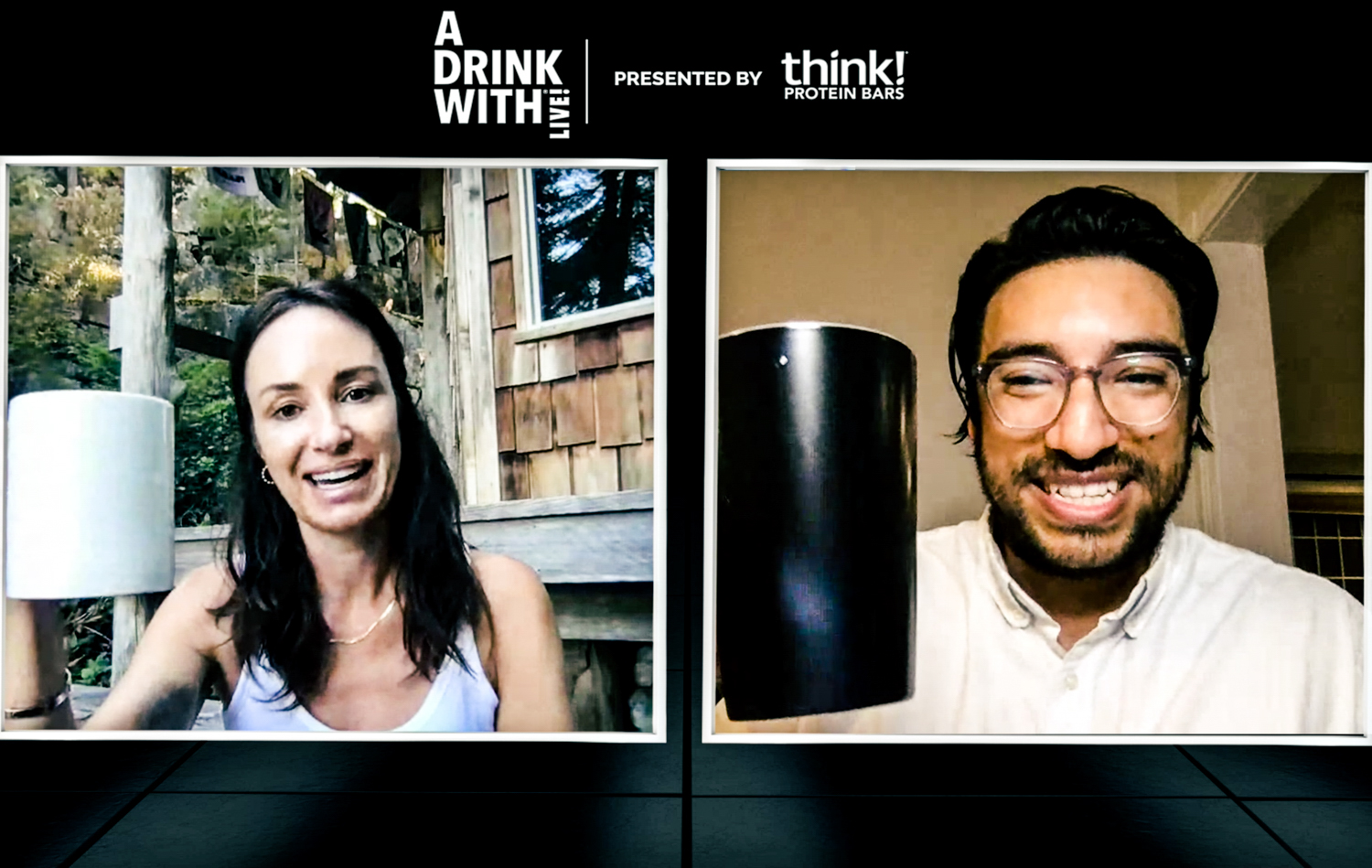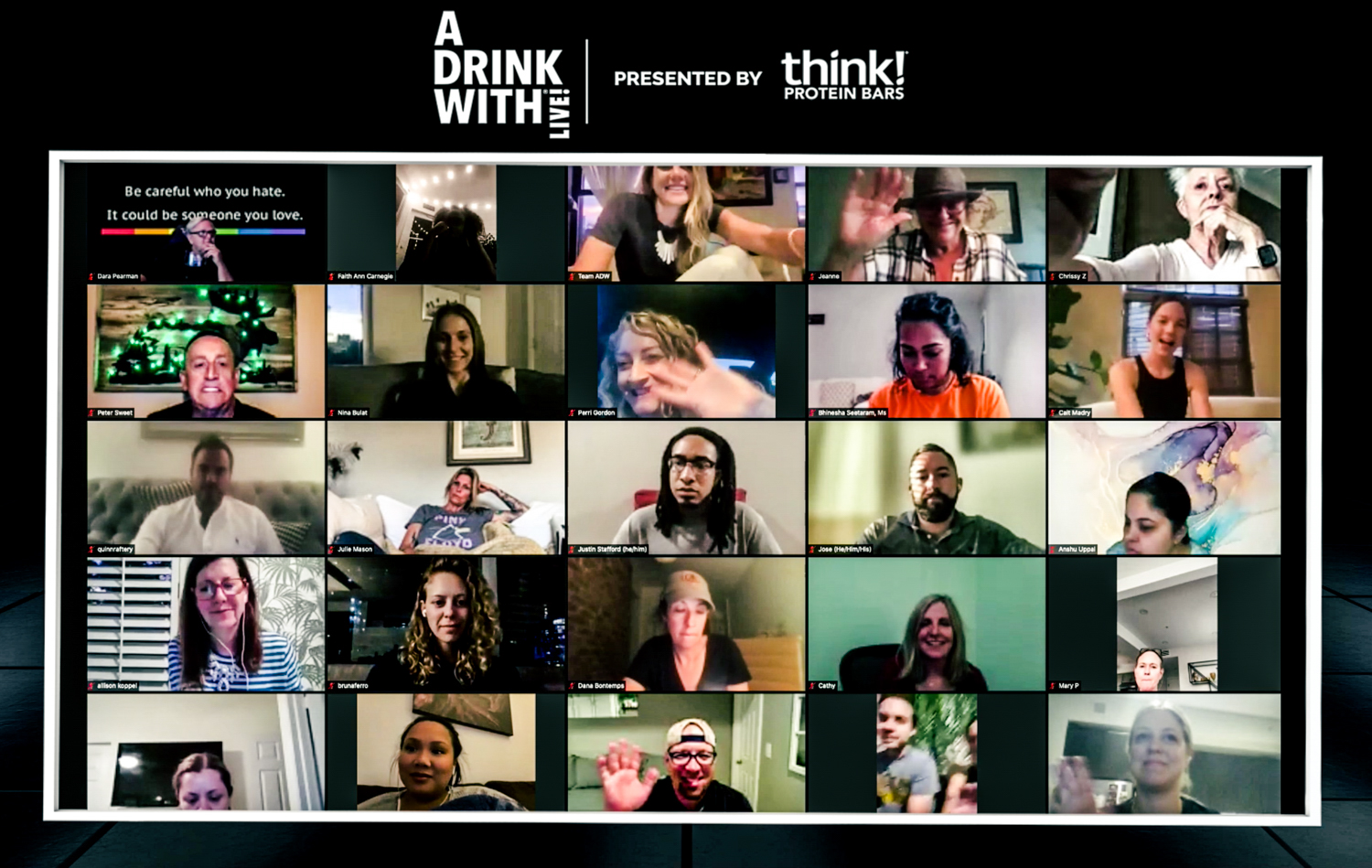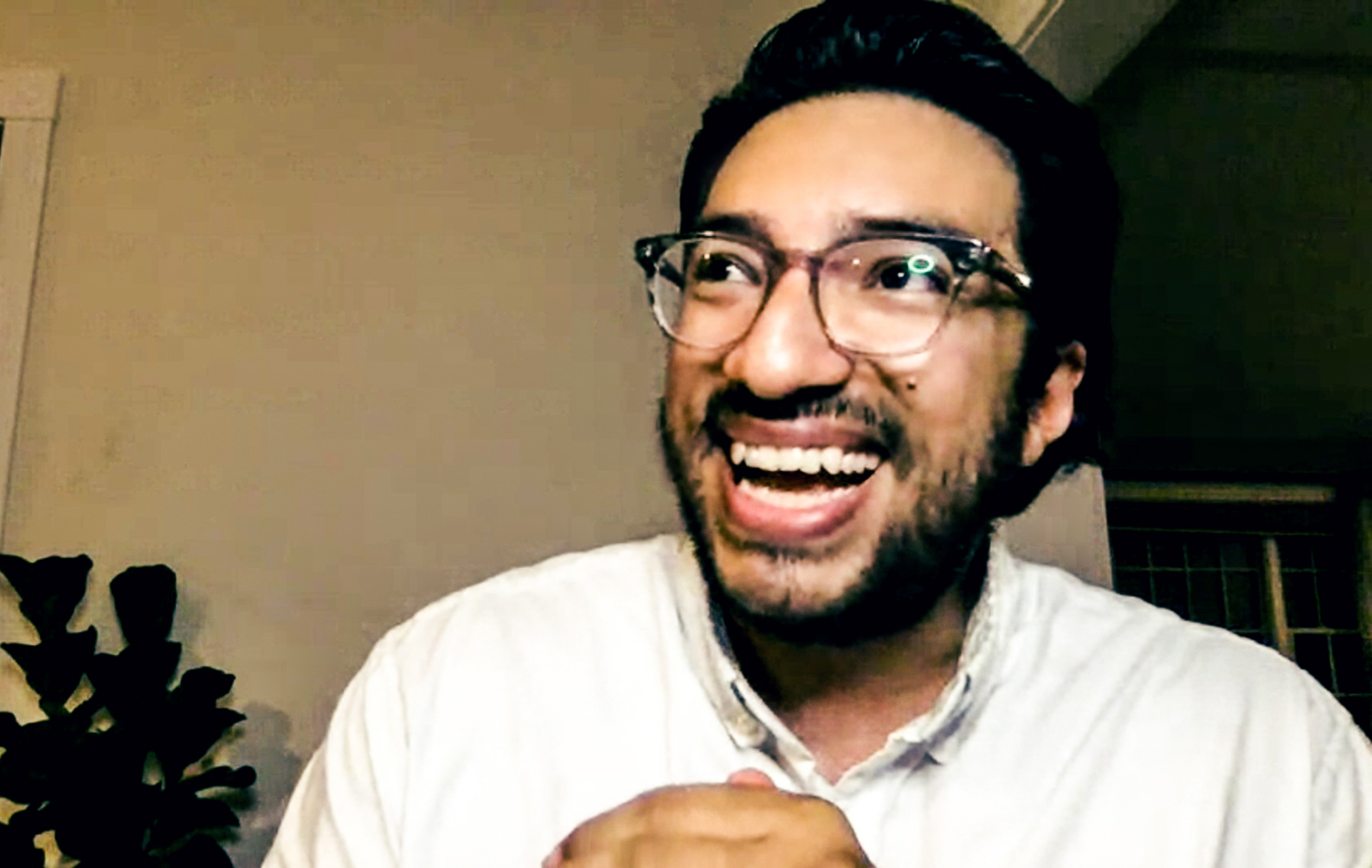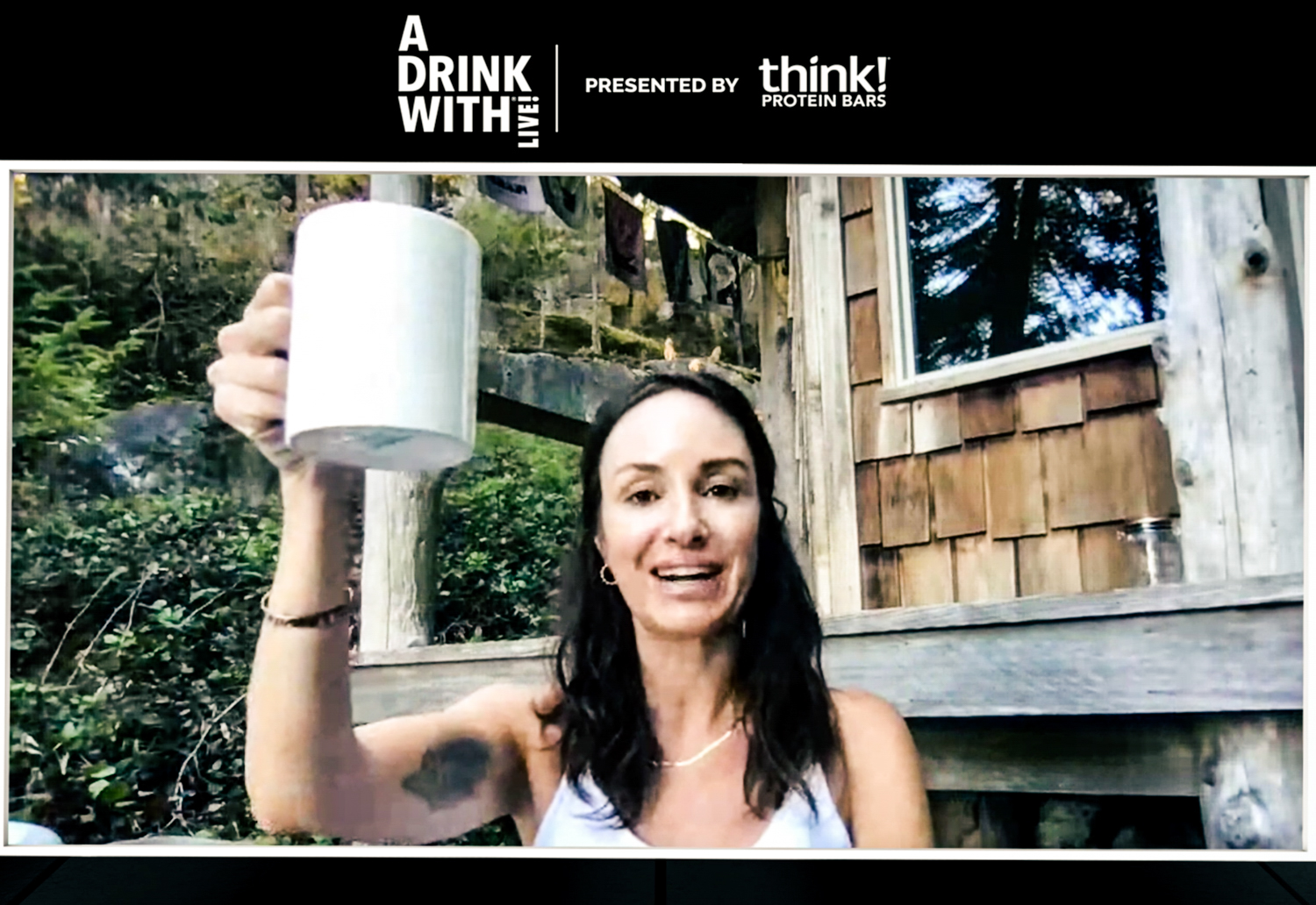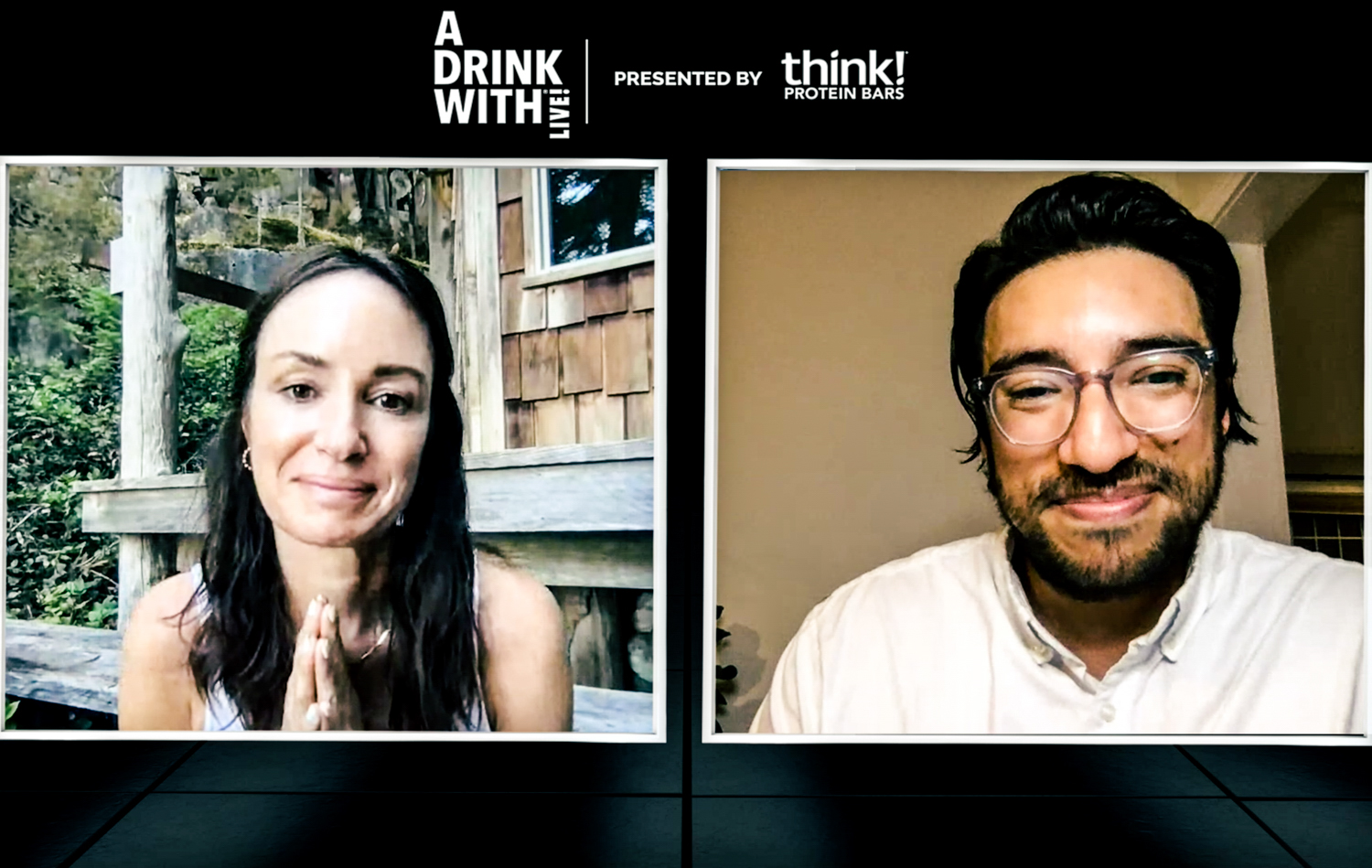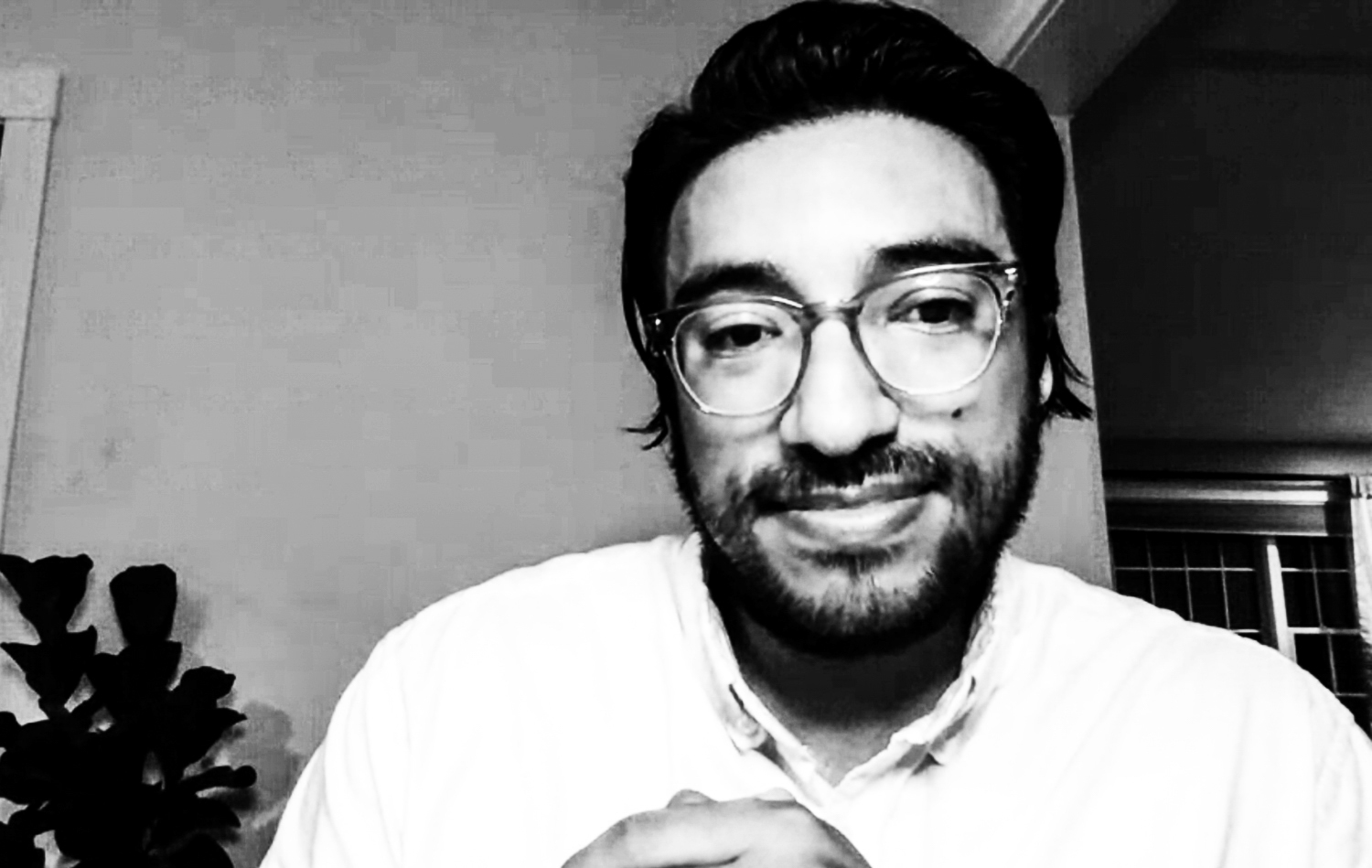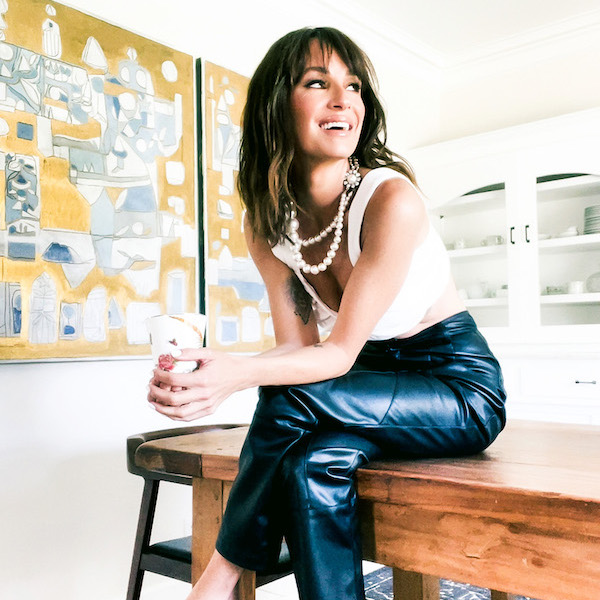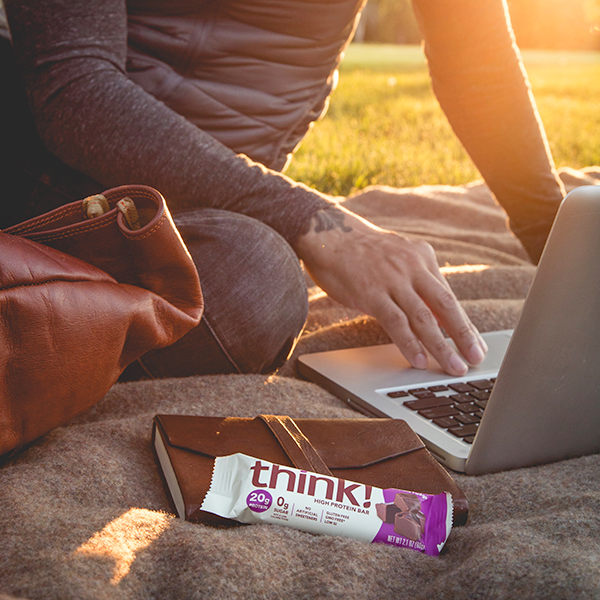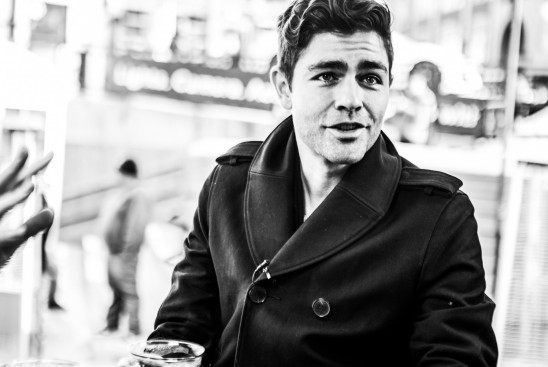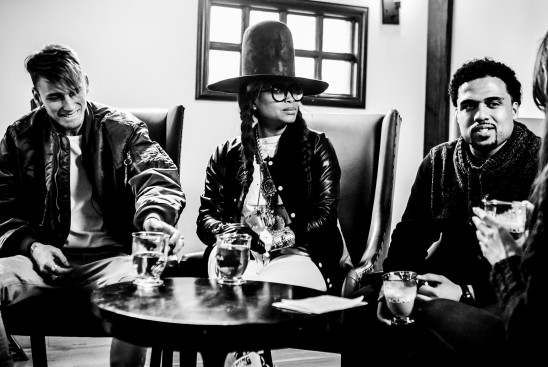The name came to me first and then over time, it developed a lot of meaning. I realized that a lot of the work that I wanted to put together, all this writing about self-awareness and about really knowing that healing is possible, I realized that it was critical for this leap forward that humanity was making. Especially during this century, because we’re really young but we have a lot of maturing to do. When it dawned on me that we’re all incredibly young, it felt right to put all of this work that I was doing under this name, Yung Pueblo. Because it’s not really about me, it’s about the journey that we’re all on.
One, it was the push from hitting rock bottom, honestly. When I hit the bottom, there was nowhere else to go. I almost lost my life by continuing on a path of really bad habits that were leading me to nowhere. One particular night when I felt like I almost lost my life, I knew that what brought me to that point was just lying to myself, all of this dishonesty. I never wanted to own up to the fact that I didn’t feel good. What really pulled me out of that was practicing a version of radical honesty where I focused on me and myself. Whenever I would feel bad, I just owned it and thought, “Okay, I don’t feel good. Now, let me sit with that and feel what that’s like,” and this is even before I started meditating. I think honesty really changed the game for me.
Whoa. Do you think most people need to be on the edge of that rock bottom to start their healing journey? What advice would you give them?
I really don’t think that you have to hit rock bottom. For most of us, if we’re being honest with ourselves, we can realize that we could be a little happier, we could treat ourselves better, we could accept ourselves a little bit more, we could be more patient with ourselves and other people. So, there are all these different areas where we can grow. When you realize that a lot of the dissatisfaction in life is you causing that to yourself, that creates this whole opportunity, this world where you can start accessing deeper parts of yourself so that the best parts can really come forward.
As you started to evolve, grow, transform and heal, the writing became this extension of yourself. How did the writing piece, what you share with all of us now, become what it is?
It’s interesting because I never thought that I was going to be a writer. I thought that I was going to either spend a lot of time actively being part of the social justice world or possibly going into some form of finance, because I grew up in a lot of poverty. I knew that I had to provide for my family in some way or another. But when I started meditating, I realized that there was a much deeper aspiration, an aspiration that was underneath all the things that society had taught me. And when I started healing myself and removing those patterns and removing that heavy conditioning, I was connecting with the fact that I wanted to write. I was shocked by the idea that healing was even possible, so I realized I should write about this. And even though I don’t have all the answers; I’m not fully healed or anything like that, there’s still a lot to share here. Hopefully it’ll inspire other people on their own journeys.
Is anyone ever fully healed?
I think so. I think it’s just a long journey so it’s hard to see the end. And oftentimes, the healing journey will actually — if you really go deep — will connect you with the liberation journey, which is much deeper. It’s when you’re trying to connect with the deepest truth that the universe has to offer.
Your first book is aptly titled “Inward” and your second book, “Clarity & Connection,” is out now. New York Times bestseller, by the way, everyone. Do you have a title for your third book?
I’m figuring out the title of my third book now, but I do have a title for my fourth one that I’m also working on. So, the third one, it’s going to be different. It’s not going to be the same type of short pieces and it’s not going to be as light. It’s going to be a bigger non-fiction book that really has all the nitty-gritty stuff about personal healing.
How long do we have to wait for that? Years?
No, no, actually, I’m working on it. I’m almost done with it and it’ll be out sometime next year.
Speaking of your writing process, is there a formula to what you do? Is it just any time, any place?
It’s a mixture. Oftentimes the writing process is really spontaneous and it’s just inspiration that arrives out of nowhere. I’ll be walking and moving and then boom, some words will come, or I’ll have a conversation and then a few things will click and I’ll just pull my phone out or pull out a piece of paper and write things down. Other times I do have to give myself a slight push to just get it going, but I try to really relax before I write so that I don’t put a lot of tension into the work that I’m creating.
And your Instagram, do you run that yourself?
Yes.
Do you have help or are you very hands-on?
I’m very hands-on. I post every morning. I try to figure out what the mood is for that day. I’ll either post something that is in one of my books, or something that I wrote a few months ago, or something new that I just created that morning or the day before. It’s completely organic. There’s no one else running it besides me.
Does your 1.4 million followers on Instagram blow your mind? How do you make sense of that?
It’s a little mind-boggling. It’s hard to conceive such big numbers, but I also think that it’s a little bit of “right place, right time.” I feel like my own healing journey has connected with the fact that, for millions of people around the world, being miserable is going out of style. You know? People don’t want to be miserable anymore. They’re trying to find different avenues, whether it’s through meditating, whether it’s through seeing a therapist or journaling, but they’re all delving into introspective methods so they can know themselves. Because look, money can help you in a lot of different ways, but it’s not going to make you happy. Or, finding a great partner can offer so much support, but they themselves are not going to make you happy. At the end of the day, it’s you and yourself. And you figuring out that relationship and building harmony within that relationship between you and yourself, that’s the only way that you’re going to be able to bring harmony into your life and into everything else that you’re doing. It’s going to really help you shine. But it’s between you and yourself, that’s what it is.
“Being miserable is going out of style.” I love that one. Is that a post?
That hasn’t been a post, but my friends and I joke about that because it really feels like that’s what’s happening.
Speaking of social media, people like Jennifer Aniston, Glennon Doyle, Ava DuVernay and Reese Witherspoon follow you. Do you pay much attention to that at all?
I didn’t know about Ava DuVernay, I had no idea. Oftentimes I find out through friends. It’s nice, you know? It’s great that it’s connecting with different people, but honestly, at the end of the day, it’s all about impact. Like what you said earlier, you often don’t see my face. I do interviews and whatnot, but I created the Yung Pueblo name and wanted to bind it around this idea of all of us growing collectively so that I can just hide in the background. To me, it’s fantastic that it’s growing, but at the same time, I try to keep my distance because it’s a lot and I like living a quiet life.
Meditation is a part of your life. It’s the first hyphenate that shows up on your Instagram and Twitter: Meditator. Tell us a little bit about your practice.
Meditation has been everything. It has not only introduced me to myself, but it’s helped me understand the underlying laws that move this universe forward. Particularly the Law of Impermanence, that everything arises eventually passes away. It sounds so simple, but it’s such an important idea that we’re often fighting. We’re constantly fighting the reality of impermanence. A lot of our misery is due to the fact that we’re fighting impermanence. When we’re able to embrace the reality of change, it opens us up to a world of happiness and also to a world of presence, to being able to really connect with whatever’s happening in front of us.
The practice that I do, it’s called Vipassana. It’s taught by S.N. Goenka, a person who has since passed away, but there are meditation centers around the world who teach the same technique that originated from Burma. It has its roots in Buddhist teaching, but it’s a simple technique where you spend 10 days at a meditation course learning how to meditate. It’s not a light form of meditation, it’s very serious. It’s a totally silent retreat and they teach you how to concentrate your mind for three days, and then after that for seven days you focus on purifying the mind by observing what’s happening in the body. But it’s a technique that I started practicing back in 2012. It’s just radically, radically changed my life in ways that I did not foresee.
How long do you meditate every day?
On a daily basis, I do an hour in the morning and an hour in the evening. So, when I wake up and before I go to bed. Two hours a day. A few times a year I’ll go away to courses. The big one that I have coming up is a 45-day course in January, which I’m pretty excited about. I’ll be totally offline, so that’ll be great.
One of my favorite passages of yours is, “Wanting always interrupts being.” In the world in which we live, it’s such human nature to seek, want or look outward. I love that what I believe you’re saying there is that we lose the present. Forget my interpretation, what does it mean?
I’m grateful that I wrote that one, because it’s so important to what I’ve understood from my own practice. I’ve shared it online a few times, but it’s not the most popular one. It’s in the first book.
I love that you connect with that one because it’s critical; it happens on a daily basis. We’re constantly craving, and we don’t realize how much we lose to this constant loop of wanting more. The moment that you get caught up in the imagination of wanting more, you’re no longer with what’s happening right in front of you. There could be the most beautiful things happening in front of you, and you’re totally gone, inside of your imagination. But wanting, it’s fine to have desires, it’s fine to have goals, but be careful with the edge of craving. Because when you fall into craving, you’re automatically going to fall into tension, and you’re going to be creating so much misery for yourself in your mind.
What is your most popular post or most liked post?
It’s one about a healthy relationship. It’s something along the lines of, “A healthy relationship is being able to take turns supporting each other when you’re going through turbulent moments,” something along those lines. I think that one really connects with people, because in a relationship, you’re not always going to feel great, you’re not always going to be at 100 percent. When both people can own that fact, they can be there for each other when those moments arise. Especially when you have two people who are dedicated to healing themselves, there are going to be times where your energy needs to be focused internally, because you’re processing some serious trauma, or some heavy emotional history that will need your attention. If your partner recognizes that you’re going through one of those periods, they can support you and help ease you through that, gently. Taking turns in that is one of the most beautiful things that we can offer to each other.
With the racial injustices and political divide in today’s world, how can we healthily internalize everything going on?
It’s a lot. I think there’s a balance. At one point, we live in a century that is full of immense challenges. We live in a historic time that will be looked back upon with questions like, “What does humanity decide to do with climate change? With racism? With patriarchy? With all of these huge, massive problems that we have to deal with.” But at the same time, we collectively aren’t going to be able to solve these issues. As individuals we need to figure out, “Where can I help? And also, when do I need to take breaks?” Because you can overwhelm yourself with all of the drama that’s constantly happening on the news. You can really burn your energy out quite quickly if you’re constantly reading pieces full of sorrow.
Now don’t get me wrong, I’m not saying disconnect yourself from what’s happening. Be connected to reality, but at the same time, understand how much you can handle as an individual. Because if you’re able to handle the right amount for yourself, you won’t push yourself out of balance, and you’ll actually be able to help more. The different issues that really connect with you. It’s a time where we’re all being challenged to expand our compassion, for ourselves and for other people. It’s going to be a case-by-case situation, but I’d say, be in touch with what’s happening in the world. Be active, try to make a change, but at the same time, do not burn yourself out. By taking care of yourself, you’ll be able to find that proper balance.
What is your definition of self-love, and why is it so vitally important
When I think of self-love, it means doing what you need to do to heal yourself, and doing what you need to do to, for yourself. To me, self-love is not necessarily about pampering yourself, it’s not about what you can get yourself externally. It’s about what you can do for yourself internally. It’s being able to connect with what’s happening within your own conditioning, understanding yourself, and your patterns. All of that internal sculpture that creates who you are, being intimately connected with that is going to be able to bring up that challenge when you see the rough parts of yourself. You’ll have no other option but to accept them. You’re either going to run away from them and hate them, or accept them. When you fully accept them, that’s real love. With that comes this opportunity for more of that deep conditioning to break apart and for you to allow your raw, loving, creative human nature to really come forward
[Audience Q/A – Anshu]
My biggest challenge is to start meditating. How did you overcome that hurdle to start meditating?
It’s a big hurdle. I started by just pushing myself into a situation where I was being taught what to do. I signed up for a 10-day Vipassana course, and I had not meditated at all. I think I had meditated one time for 20 minutes, and I didn’t know what I was doing, and I got no real benefit from it because I had no technique. For people who are just starting out, don’t try to reinvent the wheel. There have already been people who’ve figured out amazing techniques that you can jump into, learn it, and then make best use of it. So, if a 10-day Vipassana course feels like it’s too much for you, there are other techniques out there that are five days, or two days, but putting yourself in an incubator where you learn properly how to meditate makes it much easier to then go back home and keep doing what you’ve learned to do.
[Audience Q/A – Andrew]
My question is around diet and inputs into your body. What are you eating? What are your thoughts on stimulants like caffeine, nicotine or the stuff that’s casual that people do day-to-day, and we’re not conscious of?
The inputs on your body are really going to affect your mind. For a diet, there’s no one great diet, to be honest. I’ve been vegan, I’ve been vegetarian, I’ve been paleo, they’ve benefited me at different points in my life. I’ve thought, “This is what can support me in taking my next leap forward.” It really depends on where you’re at, and also what fits your body. It’s really interesting that a particular diet might benefit me really well and then my wife needs something totally different. It’s case by case, there’s no one answer for that. In terms of stimulants, and also intoxicants in general, I would say, coffee, it’s a fine thing; I drink coffee very occasionally. But I don’t drink alcohol, I don’t smoke marijuana. I don’t take any type of intoxicants because they do make your mind dense. If you want to be a really serious meditator and go really, really deep, I would say removing the intoxicants as much as possible can help make your mind stable and powerful.
[Audience Q/A – Perri]
How did you have those hard talks with yourself about trying to find out what you were hiding from yourself?
Those were some of the hardest moments. I spent a year being honest with myself before I actually started meditating. There was some hard love. As soon as my mind would become tense, I would want to run away. I would want to either interact with another person or I would want to smoke weed or just do something to get away from myself.
I remember spending a lot of time in my room in my mother’s house, just forcing myself to sit down on the bed and just feel what I’m feeling, to just not run away from it at all. I had no real process. It wasn’t like I was journaling or anything. I thought, “Let me just feel what’s real in this moment and not try to find some avenue to escape.” It was hard, but it became a habit like anything else. Over time, it became easier to develop that.
[Audience Q/A – Bhinesha]
When you decided to take the light of your work to the world, how did you go about doing it? Did you have a plan, a vision?
I think there definitely was a plan, and it’s still the same plan. My plan is: hopefully I make something useful. With every book that I’ve written, with every piece, I hope that people can see themselves in it. If I make something that’s useful, something that I myself would use, other people may use it too. If they find it worth their time, they’ll keep coming back to it. That’s always been my goal. It’s not, “How many books I should sell or how many people, followers.” It’s, “Can I make something useful? And is this going to be worth other people’s time?”
[Audience Q/A – Brandon]
How do you go about differentiating manifesting and goal-setting in a meditation space? How do you press pause, trust that’s enough and just clear your mind and meditate?
Personally, when I meditate, the technique that I do is focused on impermanence. We’re studying the impermanent nature of the body and of the mind. You’re feeling what’s happening. I try not to spend a lot of time thinking about my thoughts. I’m not in my head wondering what I want and what I want to do. I’m observing what’s happening, or trying my best to observe.
The separation between goals and cravings or things that you want too much, where that creates tension in your mind, that’s really important. Even with meditating, you could have really valuable goals like, “I do want to build my awareness and make it stronger. I do want to become more equanimous so that I can see things more objectively.” Being able to move forward with these goals in a calm manner that is slightly detached so that you can put energy forward, without being super attached to the goals, makes a big difference. A lot of the tension that we create when we have goals actually pushes the thing that we want away. If you’re able to work peacefully, you’ll be much more productive.

